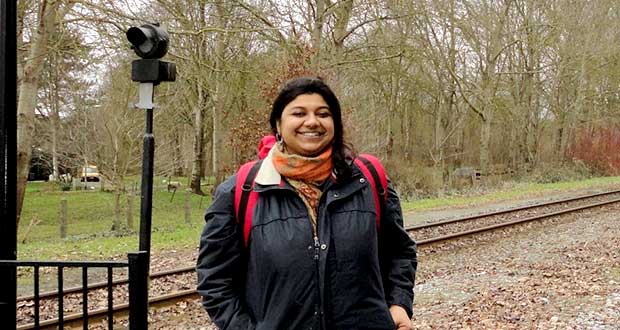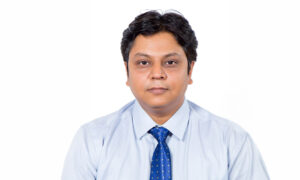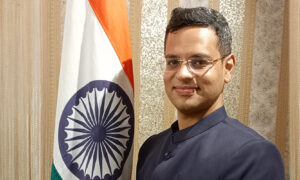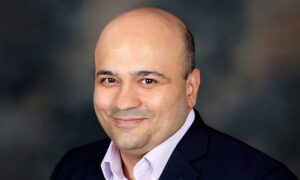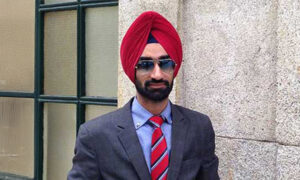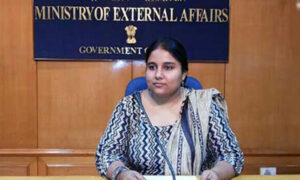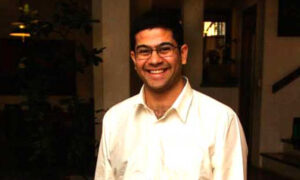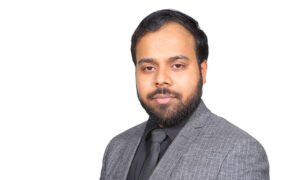Soumya Saxena is currently working at NCAS (National Centre For Advocacy Studies). She graduated from NLIU Bhopal in 2009 and had worked at different places before joining NCAS. She holds a Joint European Master in International Humanitarian Action Ruhr University.
In this interview she talks about:
- Work at different NGOs in India involving Civil Rights
- Joint European Masters from three different European Universities
- Work at United Nations and Transparency International
- Current role at NCAS (National Centre For Advocacy Studies)
Given that most of our readers are law students and young lawyers, how will you introduce yourself to them?
First of all, thank you SuperLawyer for this opportunity to let me speak about my education, career and experience. My name is Soumya and I am currently working with National Centre for Advocacy Studies in Pune as a Programme Officer. My work is oriented towards promoting people centred advocacy. It revolves around enabling the marginalized sections to raise their voice for their causes.
I basically come from a family of bureaucrats, army men or you can say anyone who works in the public services! I was not much oriented towards pursuing competitive exams so I had two options: either do Bachelors in History or English. Yet I was somehow pushed into study law.
How did you gravitate towards law? Tell us about your college life at NLIU, Bhopal. What all activities did you partake in?
I was not really interested in taking the law entrance tests. Rather I was oblivious of the law universities around the country. Although I was keen on doing a B.A. in History from Delhi University, my parents insisted that I must take the entrance tests, so I applied for a few and got through Bhopal. It appeared at that moment the best option so I dropped the idea of studying History.
NLIU was fun. It is like a small community of students in a sort of a stranded village and therefore interaction and a feeling of fraternity is quite strong. I was a part of Law and Economic Cell and the Environmental Law Cell and took part in the events they organized. I would like to mention our library is quite good and I did spent a lot of time there.
You have interned with a national newspaper “The Hindu’’ as a staff correspondent. What was your job as a staff correspondent?
It was one of my best internships. I loved every single day of it. At first I was totally unaware about what I was going to do, but then later with the support of other journalists around I improved quite a lot. I use to cover various events that were happening in the city and then write about them for getting reported in the paper next day. I was lucky to have met Mr. N. Ram and have a discourse about journalism and media for a while. The newspaper always made sure that they give the interns good and responsible work. I remember assisting the senior journalists in doing important stories that were to go on the front page. I also did stories on current issues and asking opinions about it from public. This was a good experience because you got an opportunity to randomly interact with different people.
After graduation, you got the opportunity to work with the World Wide Fund for Nature (WWF) at their New Delhi office as a trainee where you worked for 6 months. Please tell us about it.
I had previously worked with WWF in 2005 as an intern. I knew certain people there so I wrote to them if there could be a possibility of an internship. I was lucky to have received the opportunity again as they were urgently looking for people to work on a grant proposal. I was working in Centre for Environmental Law cell. I was involved in writing the grant proposals and the diploma course which they ran on Environmental Law. It is a very nice organization to work at they have a lot of projects and programme, and being the headquarter in South Asia, offices from Nepal, Bangladesh also Pakistan also report to them. So their work is not just limited to India but is varied. After working there, I realised I must work in the non profit sector as a career option.
When did you decide to pursue higher studies? What was your motivation behind doing an higher studies?
I did my Masters in International Humanitarian Action. During the course of my internship, I wanted to pursue my Masters either in Human Rights or International Relations. I came across this fantastic course in Humanitarian Action which was run by Network on Humanitarian Action (NOHA), an organization based in Brussels, Belgium in collaboration with seven universities all over Europe. When I went through its course structure and other opportunities that it provided I knew I wanted to do this course.
Tell us more about this Joint European Masters in International Humanitarian Action from Ruhr University Bochum, Germany, University of Groningen, Netherlands and Monash University, Melbourne (Australia).
Humanitarian Action is a diverse course. It does not teach you a single aspect for working in the non-profit sector but it gives you a quite a holistic background of working there. I looked at it as a complete package of learning and practicing everything I wanted. The course had modules on Project Management, Anthropology, Geopolitics, Human Rights, etc. so I was learning everything which I did not. It was enlightening! I learned about so many issues, about different countries and cultures which I had no idea about. It was like coming out of the well.
They made the students travel a lot! We attended the Red Cross Humanitarian Congress in Berlin, also had a simulation exercise organized by Red Cross Germany, where we were put in a situation that we are kidnapped by a militant organization while working in a conflict country. They gave us an insight that what should we do when we are in such a situation. It was spooky!
From Groningen University we went on a field trip to Georgia. It was very interesting. I had never been to Eastern Europe and the situation there was similar to what I feel is in Kashmir; the ongoing separatist movement and the conflict of separatists and the central government. We visited the refugee camps there and spoke to people about how they feel. It was very enlightening; I can write an entire paper about it. But on a lighter note, Georgians love Bollywood! Since many Indians do not visit there, people were very happy to see me. They used to greet me and ask about films and songs. It was wonderful.
Please take us through the application process for Joint European Masters in International Humanitarian Action? How did you go about writing your SOP?
Application process was tough. You have to keep in mind that people from all over the world will be applying here. So you would have to be very precise in what you write. I do not have my SOP with me but it was in the lines of my career interest, my previous education and what I wished to do in future.
I believe you do not have to write what they want to here but what you want to tell them. Many regular SOPs are repetitive, so when I wrote mine I explained that how in India there are Humanitarian issues but there are no studies to educate people in this field. This is sadly, true. There are hardly any courses in India that would prepare people for humanitarian work specifically. I am sure many people must have written that too. It partly depends on your luck as well.
I approached my university professors for the recommendation letters and they were very supportive of giving me as many as I required. I applied at over 10 universities in Germany and Sweden, so you can imagine I would have needed so many recommendation letters.
What was your topic of dissertation for Masters? Why did you choose that subject for research?
My dissertation was titled, ‘Reviewing U.S. Policy on use of Torture and Detention in Guantanamo Bay Prison during Afghanistan Conflict, 2001-2003’. I wanted to work on a topic related to human rights and humanitarian law, and this topic came up as something that caught my interest. There have been a lot of research on this but still what existed was a grey area. The humanitarian laws cover the rights and interests of armed forces but do not apply to ‘unlawful soldiers’ like the Taliban, so they were open to inhuman torture. Most of them were not even terrorists and in this situation they were without any sort of remedy. So I took up this topic where I gave the suggestion that since many conflicts in today’s world are between the State and ‘unlawful soldiers’ or militants, we need to re-frame the international laws on it. Recently, after the Senate report on CIA torture came out just a day before Human Rights Day 2014, it just becomes more relevant. I understand people in general do not have sympathy of any sort for terrorist of anti-state militia but what happened in these prisons was beyond inhuman. It is not about treating the terrorists, it is more about the lowest level of sadism where humans can fall. And all the perpetrators went scot free. No one was tried for torturing and killing innocent people.
Writing my thesis was really hard on an emotional level, for the readings I did left me quite numb. I am still working and writing on this issue. I keep attending seminars and webinars and participate in forums where this issue is discussed.
Does Ruhr University Bochum and Monash University provide students with scholarships? Are there any other institutions, which provide scholarships?
My course was under this European education certification called Erasmus Mundus. I did have living stipend of Euro 300 in Germany and Holland but it was not extended in Australia because it was a non-European country. There are many institutions that provide scholarships in Germany. You can check their programmes and opportunities as suited to you at www.daad.de
How was your time in both of these universities? How is the academic workload there?
Work load in Germany was different from that in Holland. The course in Germany was very intensive but they plan it very well and divide the work load equally. We just had one written exam and the rest were vivas, so it was more of reading and learning so that you can answer what the teacher questions. The one written exam that we had was also an open book exam, so it all depended what how you studied all through the semester. It was more focused on capacity building, reading and learning things rather than making notes or taking exams. In Holland there were no exams at all! All we had to do was work on two papers on a particular topic each for the entire semester. This was quite interesting because it improved my research and writing skills. I worked on a paper based on the political situation in Myanmar.
At Monash in Australia, we had no classes. I only worked on my dissertation and was free to attend any lecture which I was interested in. They had given a list of lectures to us beforehand.
During your Masters, you worked as a Project Trainee of United Nations Development Programme Iraq, Amman. How did you go about achieving this United Nation Development Programme at Iraq? Would you like to share any remarkable experience of this programme?
It was a cultural shock of its own kind! To start with, I landed in a country I had no idea about, I didn’t know anyone. I didn’t know the language and all that in the middle of the Arab Revolution. It was hard but fun altogether. I worked with UNDP Iraq on two projects: ‘Rule of Law’ and ‘Family Social Justice’. The experience was very different, because as a lawyer we are taught how to acquaint ourselves to the adversarial judicial system. But it was inquisitorial in Iraq, and I spent weeks understanding how that works. The project focused on improving the rule of law situation in Iraq post conflict. The family justice program was developing a law against domestic violence, which I worked on really hard but the authorities rejected many of its provisions which were essential. It was dismaying but we have to understand as foreigners it is hard to bring in radical changes in other countries. It cannot happen overnight it takes time and the participation of the local people is important. My learning from here was that there are different countries and culture which are not similar. We may not agree with many things that they do or are doing (it definitely goes against international standards) but that does not mean that to prosper they should become like the Westerners. Nor do the westerners have the duty to change their situation by imposing our value system. Change will come in due time but from their own people. I am waiting for that day. J
U.N. does a lot for its staff and its security. We were always connected with their central system through cell phones. They sent us alerts and warning about where to go and which areas to avoid. Also they spent a lot in our capacity building. I did courses in Arabic there for free; they had trainings on CPR, first aid and other relevant things. It was overall a great experience.
After Masters, you worked with Transparency International (TI) Secretariat at Berlin (Germany) as a Team Assistant in their Asia Pacific Department (APD) for one year. How did you secure your appointment? How would you describe your experience working there?
After coming back from Jordan, I lived in Bonn, Germany and learned German while looking for jobs. I applied to every place in the world possible but it is hard to get a good job as a fresher. I saw this position, applied and forgot because I applied at so many places that it was hard to keep a track. I heard back from TI one pleasant morning. I had to undergo two rounds of interviews with them and a written test and got through. The experience was of course great and I was constantly learning. German standards of working are really high because they are organized and keeping up with them is a task in itself. They attach high importance to deadlines and you always have to work keeping that in mind. It was a little tough initially but you get used to it. Our team was multinational. My colleagues were from all over Asia, including China, Thailand, Sri Lanka and Pakistan. I worked on various projects and research work. To name important ones I would mention our advocacy efforts in Afghanistan, Bhutan and Myanmar to set up an office of TI in these three countries apart from organizing the Anti Corruption Conference in Brazil and Cambodia. It gave me an opportunity to travel with work and meet people from all over 100 chapters which TI had.
Living in Berlin has its own charm. I find it similar to Delhi where you have both history and modern world living together.
Thereafter, you came back to India and worked with “Shrivastav Law Associates” as a Research Associate for a year. What were the responsibilities as such?
I was outside India for more than three years. I wanted to live and enjoy at home for a few months, so I did not look for a job. I worked in a local firm where I had worked previously. The work here was similar to any law firm. Honestly, I did not enjoy much because I was not willing to work in a law firm but it was an effort to regain my legal know-how a bit which I became a bit ignorant to.
You left SLA and joined National Centre for Advocacy Studies at Pune as a Project Officer of Transparency and Accountability. How did the switch from SLA take place?
I was looking for an NGO based job after a few months and got this opportunity. I saw their advertisement and it suited me as I have worked on anti-corruption before I applied and got a call for interview for which I travelled to Pune. I cleared the interview and joined recently in August.
What does your current work profile at NCAS consists of? How is a typical workday like?
National Centre for Advocacy Studies (NCAS) is a social change resource centre working with social action groups, public interest professionals, and people from all over India and the Global South. NCAS engages a participatory, people-centred policy that enables people from all levels of the society to advocate for human rights and social justice. My profile currently deals with two projects; one is Mainstreaming Advocacy, where we act as resource people and educate people/organization/students about advocacy and its modules. Secondly, I am also working in the issues of Urban Poor, where we focus on the concept of the 100 smart cities which the Modi government has promised and see how it includes the BPL population in these schemes. When we build a good city it must be with the inclusion of the poor and marginalized and not by excluding them.
NCAS recently celebrated its 20 years and has been dedicated to work for the marginalized. I request the reader to read about us on our website http://www.ncasindia.org/
My work here is quite enriching. It is my first time working in a people-based NGO in India. I learn everyday about issues which often do not get main stream highlight. We actively work on land rights and forest rights for the tribal.
Many lawyers would say that the actual learning takes place in the years of practice. How far would you say it is true? What was the case in your situation?
I agree to it. It is like you read a recipe on the internet but how you make it in the kitchen is an altogether different issue. Even as a humanitarian worker I know all the laws and good practices but while working, people make horrendous mistakes and only learn through experience. To give the perfect example is of UNDP Ira. I knew all the international laws relating to women and anti-domestic violence laws. I could draft a perfect legislation for the Iraq women, but what I forgot was their cultural context. Our draft was only accepted in parts, so I learnt that having all the knowledge but not knowing how and where to use it could lead to disastrous results. When we are working with people and for people, our knowledge plays an instrumental and administrative role. What matters more is what people want and how we can provide it to them harnessing on their own efforts. The NGO field as often people think is not very easy to work with. If we do not work efficiently, we can create a lot of problems for everyone. Therefore apart from having knowledge, having a sound perspective of the people you are working for is what is required.
What would be your parting message for our readers?
I was delighted to see this website. It is something that has always been missing for the legal fraternity. As far as a message is concerned I would say that the legal field is huge and has many facets which the students are free to explore. When I was studying, everyone simply aimed at getting a placement in a law firm, which is fine as everyone has their own priority but I was not convinced to work the similar way. I just want to tell the students who do not aspire to work in law firms or courts that as a lawyer you have various other options you can explore. It may not necessarily be an NGO or the non-profit sector. Legal studies gives you a holistic knowledge of everything under the sun, therefore you have the advantage to take up any career option later on.

